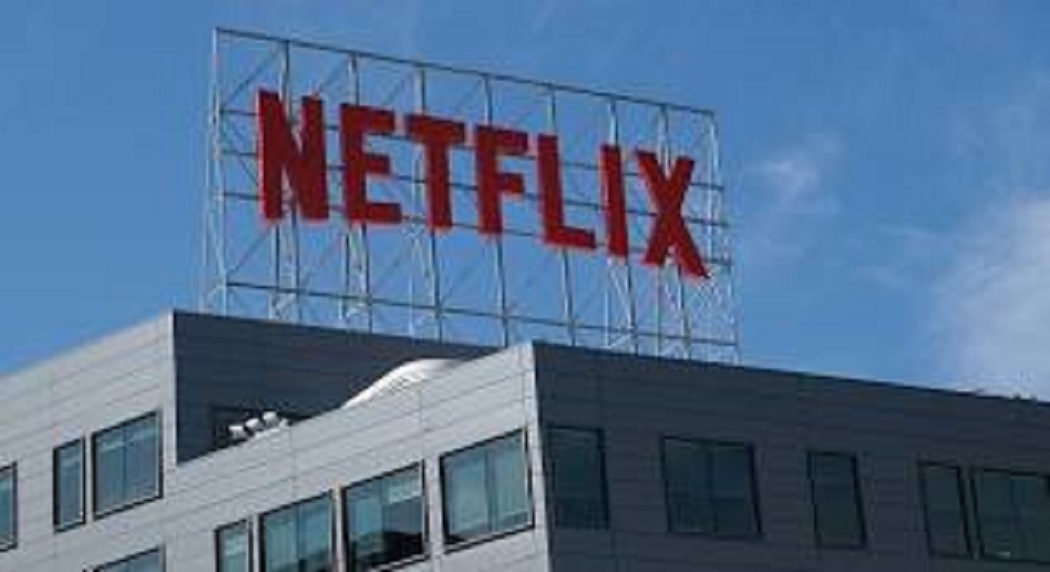Telecom
GSMA Highlights Key Trends Shaping the Future of Mobile

The GSMA has published its second annual ‘Global Mobile Trends’ report, which provides exclusive data and analysis on the key trends shaping the future of the mobile ecosystem.
Published at Mobile World Congress Americas being held in San Francisco this week, the 2017 edition of this flagship report series compiles data on mobile subscriber growth trends across both developed and emerging markets, plus insight on: device innovation beyond the smartphone; the evolution from 4G to 5G networks; industry financial performance and growth outlook; competition and convergence; and statistics for every region worldwide.
“Our latest Global Mobile Trends report provides a comprehensive view of the opportunities and challenges facing the mobile industry as we move into a new era of ubiquitous connectivity,” said Laxmi Akkaraju Chief Strategy Officer at the GSMA.
“Built on best-in-class GSMA Intelligence data and produced by our in-house team of industry analysts, today’s report maps out how future networks and operator business models are evolving within a rapidly shifting industry landscape.”
Key takeaways from the 2017 edition of the Global Mobile Trends: Connecting the next billion: Five billion people are now connected to mobile networks, representing two-thirds of the world’s population. However, growth is slowing; it took four years to move from 4 billion to 5 billion subscribers and connecting the next billion will take longer still. Meanwhile, smartphone and mobile broadband growth is driving mobile internet usage and engagement, and new form factors are emerging beyond the smartphone.
Rapid 4G growth: Industry excitement around 5G overlooks the fact that 4G still has plenty of headroom for future growth. 4G is forecast to account for two-thirds of global mobile connections by 2025 (up from around a quarter today), driven by increasing 4G adoption over this period in major emerging markets such as Brazil, India and Indonesia.
The pathway to 5G: Early 5G deployments will likely target high-bandwidth applications as an extension to 4G, notably 8K ultra-HD video and VR/AR apps, although the US will focus initially on using 5G as a last-mile technology for home broadband. South Korea and Japan are likely to be among the first 5G markets, showcasing the technology at the Olympics in 2018 and 2020, respectively.
However, on a global basis, it’s expected that 5G networks will be rolled out at a slower rate than 4G and adoption is therefore also likely to be slower.
Transforming the network: A paradigm shift in network architecture is required to support the shift to 5G and Internet of Things that requires the creation of decentralised networks that combine a number of network technologies (e.g. small cells, LPWA), using software-controlled network functions, and running over both licensed and unlicensed spectrum. Edge computing and network slicing will be needed to support major 5G applications.
Telecoms and media converging: Convergence is now occurring at an industry level, as evidenced by the recent M&A boom that is creating telco-media conglomerates that seek to unlock new opportunities by combining content offerings with core network services; examples include Verizon/AOL/Yahoo and the proposed tie-up between AT&T and Time Warner.
However, investors have yet to price in a growth premium for converged telco-media plays, which continue to be valued significantly below major tech players.
The quintet of Apple, Amazon, Facebook, Google and Netflix have collectively grown enterprise value 3.5x since 2010, with large telecoms operators remaining relatively flat over this period.
Telecom
MTN Nigeria Unveils CPaaS Platform to Transform Business Communication

At the recently concluded NextNow Business Forum in Victoria Island, MTN Nigeria electrified the business community with a live demonstration of its forthcoming Communication Platform as a Service (CPaaS), a solution engineered to redefine how Nigerian enterprises connect with their customers.

Unlike traditional communication systems, MTN’s CPaaS is built for the realities of a mobile-first market. The platform unifies SMS, voice, WhatsApp, email, and more into a single, intuitive interface. This approach is especially significant in Nigeria, with over 107 million internet users, 45.4% of the total population, according to Data Report. This figure underscores the necessity for businesses to meet customers where they are.
During the demo, attendees witnessed how CPaaS enables two-way, real-time conversations between brands and customers. The platform’s support for rich media, instant analytics, and seamless integration with business workflows drew particular attention. These features are designed to empower businesses with data-driven insights and the agility to personalise every interaction, whether it’s a service notification, marketing campaign, or customer support exchange.
Akinbulejo Onabolu, Head of Enterprise Segment at MTN Nigeria, articulated the vision: “CPaaS gives enterprises the flexibility to interact with their customers on their preferred platforms; whether it’s chat, voice, or messaging, in a way that feels personal and immediate. We’re looking forward to the value this will unlock for businesses across industries once it launches.”
The fireside chat added depth to the conversation, with Omowunmi Olatunbosun, Head of SME Segment at MTN Nigeria, and Stephen Agbi of Bayobab, highlighting how digital engagement bridges the gap between businesses and audiences.
They emphasised that today’s consumers demand immediacy, relevance, and ease, qualities that CPaaS is built to deliver.
The stakes for digital transformation in Nigeria are high. In a report by Punch, the country’s enterprise tech market is projected to reach $22 billion by 2027, reflecting a surge in demand for scalable, cloud-based solutions that drive efficiency and customer loyalty.
The CPAAS Acceleration Alliance have estimated that globally, the CPaaS market is expected to grow from $14.7 billion in 2025 to $72.4 billion by 2035, at a compound annual growth rate of 18.4%, a testament to the platform’s transformative potential.
The event’s closing keynote from META’s Korhan Yunak reinforced the strategic value of digital channels like WhatsApp, which are now indispensable for business communication and engagement at scale.
As MTN Nigeria prepares for the Q3 2025 launch, the anticipation is unmistakable. With its promise of flexibility, intelligence, and seamless integration, MTN’s CPaaS platform is set to become the backbone of next-generation business-customer engagement in Nigeria, enabling enterprises to not just communicate but to connect, adapt, and grow in a digital-first era.
Telecom
MTN Mulls Establishment of Fintech Firm in Nigeria, Others

MTN Uganda is seeking input from stakeholders on a plan to structurally separate its mobile money service, MoMo, from its core telecoms business.

According to the company, the proposed change will be discussed at the upcoming extraordinary general meeting on July 2.
If approved, the telco’s fintech business will be run by a new company controlled by MTN Group Fintech Holdings B.V. and a trust benefiting minority shareholders following a merger.
Additionally, the restructuring also aligns with MTN Group’s ambition 2025 strategy which aims to unlock value, attract new investors, and strengthen regulatory compliance by creating standalone fintech entities in Uganda, Ghana, and Nigeria.
The company’s fintech division has over 13 million customers, with an 18.4% revenue increase in the first quarter of 2025, driven by 19.0% growth in mobile money services, 19.8% growth in transaction volumes, and a 31.4% increase in transaction value.
Reports say the decision is part of the telco’s compliance with the National Payment Systems Act 2020, which mandates mobile money businesses to operate as standalone entities, and to align with MTN Group’s regional fintech strategy.
MTN Uganda, which is led by CEO Sylvia Mulinge, highlighted that the implementation of the proposed transaction will be subjected to a number of conditions and regulatory procedures.
“The implementation of the proposed transaction shall be subject to a number of conditions, including the company and MTN MoMo receiving all required regulatory approvals and no-objections and complying with any regulatory conditions,” said MTN Uganda in notice.
Telecom
Netflix Expands European Presence with €1 Billion Investment in Spain

Netflix has announced plans to invest more than €1 billion in Spanish film and television productions over the next four years, reinforcing its commitment to Spain as a key creative hub in Europe.

The announcement was made by co-chief executive Ted Sarandos at an event held at Netflix’s production studios near Madrid, celebrating the company’s 10-year presence in the country.
Sarandos emphasized that the investment would contribute significantly to Spain’s economy, create jobs, and enable the streaming platform to produce more local content. He was joined by Spanish Prime Minister Pedro Sánchez in unveiling the initiative.
Netflix first established its international production studios in Madrid in 2019, following the success of the Spanish-language hit series Money Heist.
Since then, its 22,000-square-meter facility has become one of Netflix’s major production centers within the European Union.
The company currently supports over 20,000 jobs in Spain, highlighting the nation’s growing influence in global entertainment.
The investment reflects Netflix’s ongoing strategy to expand its presence in European markets through original content and local talent.

 General News2 days ago
General News2 days agoAfDB to Provide $184.1mfor Africa’s Largest Solar Energy, Battery Storage Project

 News2 days ago
News2 days agoReport Reveals New Malware Posing as an AI Assistant Steals User Data

 General News2 days ago
General News2 days agoCourt Declines Access Bank’s Request to Freeze MTNN Account over N180Bn Claims

 Telecom2 days ago
Telecom2 days agoMTN Mulls Establishment of Fintech Firm in Nigeria, Others

 E-Business2 days ago
E-Business2 days agoFG Mulls Fibre Optic Layout to Bridge Internet Gaps

 Telecom3 days ago
Telecom3 days agongCERT Issues High Alert to Nigerians Using Android Phones

 Telecom3 days ago
Telecom3 days agoMTN and Ecobank Launch Chess Championship to Empower Nigeria’s Youth

 News2 days ago
News2 days agoAliko Dangote Signs out @ Dangote Sugar Refinery as Chairman














